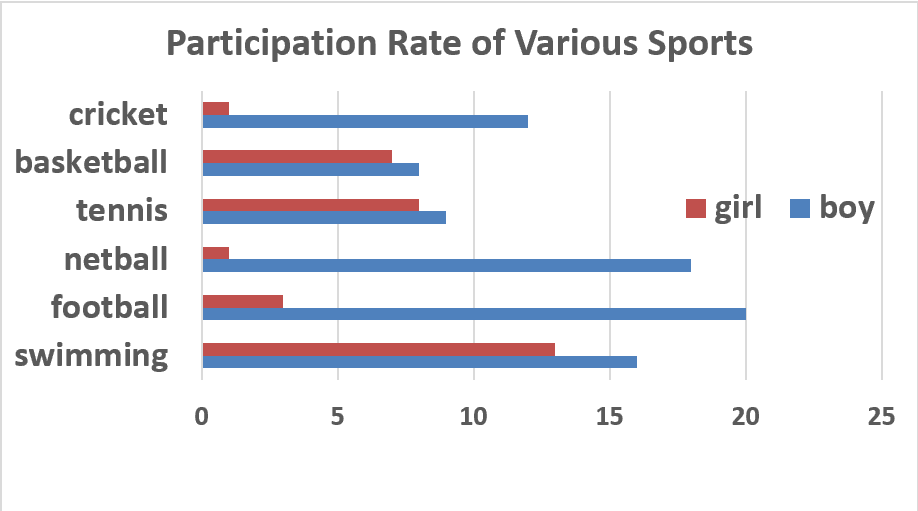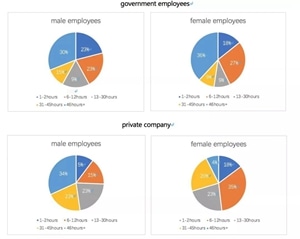托福独立写作比起综合写作更受大家关注,而为了提升独立写作水平考生也会采取许多针对性的备考方法,不过这些方法有时候效果并不大,有些方法甚至会起到反作用。下面小编就和大家分享托福独立写作4个高分误区解析,希望能帮助到大家,来欣赏一下吧。
托福独立写作4个高分误区解析 这些做法并不能保证提分
刷机经真题对提分帮助有限
首先要说的就是关于托福考试独立写作的机经真题。大家可能都会在临近考试甚至更早一些的时候就开始刷托福机经和真题,这其中当然也少不了看一下作文机经来进行练笔准备。但有些同学练笔只练机经上的题目,平时看范文背素材也全是照着机经题目来做,这其实是存在一定问题的。托福考试不同于GRE考试,作文题目官方并没有给出明确的题库,因此机经真题中的作文题目虽然也有机会复现在大家面前,但考生在考试中更多时候会遇到的都是完全陌生么有接触过的题目。面对这些题目你看过的范文背过的素材如果都是围绕机经题准备的,那么就有可能发挥不了作用从而影响考试。因此,小编大家备考还是能够以提升写作能力为主,准备素材也最好是一些具有较高泛用性普遍适用性的资料,这样才不会出现受机经真题所限的问题。
猛背素材不如针对性做少量准备
托福独立写作是立论文,而想要让自己的观点立得住有说服力,举例论证是必不可少的。小编相信大部分同学都能意识到一点,也有些同学为此做了大量准备,各类素材论据花了许多时间准备了一大堆。这种做法看似有备无患,但从备考投入时间和回报的效率比上来说不太划算。毕竟托福考试只有一篇独立写作立论文,你能够用得上的例子素材也不过五指之数。花费如此的时间背素材实在是有点浪费时间。比较高效的做法是按照独立写作各类话题的分类,每一个大类准备2-3个左右的论据素材就足够了,贵精而不贵多,这才是准备托福独立写作素材的王道做法。
不要无脑水字数要有干货内容
这个问题其实在托福考生中也是比较严重的。那就是水字数。大家可能因为托福考试对文章篇幅的要求而产生了错误理解,把一个最低限的字数要求理解成了字数越多越好,其实虽然ETS官方网站还是OG指南上都没有给出作文字数篇幅的具体上限标准,但30分钟的时间限制本身也是一种限制。文章字数多不代表作文得分就会更高,关键在于内容有没有写清楚,你想表达证明的观点有没有说通说透,评分者更关注的是考生写了什么还不是写了多少。没有干货的文章写得再多也只会徒增考官的反感情绪,反而更容易出现各类拼写语法错误造成不必要的扣分。所以,大家在写独立作文时,还请管理好文章字数篇幅,一切以内容为重。
慎用复杂词汇长难句小心弄巧成拙
托福独立写作对于考生的LANGUAGE USE是有一定要求的,而语言使用主要包含的就是词汇和句式。这也让使用高难度复杂词汇和长难句式成为了大家以为的高分秘籍。但是小编在这里要指出一点,使用复杂词汇长难句还是应该谨慎一点,量力而行。如果用的词句自己没有充分掌握其实很容易弄巧成拙,比如高难度词汇的搭配没有用对,或是长难句的句式结构和语法出现问题等等,不但不会加分反而会造成扣分,这就很不值得了。有些同学明明文章本身内容很不错,整体框架和文章论述都是高分水准,却因为强行使用一些难词难句而意外扣分,这样的做法无疑是得不偿失的。当然,小编并不是不让大家使用难词难句,使用的前提是自己要有把握不会出错。
综上所述,托福独立写作的提分方法和技巧考生在使用前还是需要有所斟酌的,不能盲目相信和使用一些缺乏可信度的所谓技巧,比如上面提到的这些高分误区,希望大家能够引起重视,避免误入歧途
托福写作模板:年轻时去旅行是否更好
题目:
Do you think that it’s better to travel to different countries when you are young than when you are older?
范文1:Argument 1 (for)
It is better for people to travel to different countries when they are young than to wait until they are older. Younger travelers gain many useful experiences and skills. By waiting until they are adults, people lose out on many opportunities that could assist in situations throughout their lives.
Travel is an opportunity to supplement education about new places, cultures, people, and languages. A basic understanding of such things is taught in schools, but travel provides students with an opportunity to experience such things in person. Therefore, travel rounds out a classical education and solidifies what is learned. For example, a person may take several years of a foreign language such as German in school, but never have a chance to practice outside of the classroom. That person will invariably forget most of the language. However, if that person goes to Germany and talks with local people, he or she will remember the words better and develop a stronger understanding of the language and culture.
Not only does travel reinforce standard education, but it is also a chance to get a viewpoint that is not taught in formal academic settings. Going to new places opens doors for making friends and seeing life from a different angle. Such an expansion helps break down dangerous stereotypes and biases that lead to hatred, prejudice and war. It is important to have these experiences as early in life as possible to create a more just and equal society.
Finally, travel develops self-confidence. People learn to deal with situations outside their familiar rage. It is good for young people to gain the confidence that they can cope with new experiences on their own. Even simple activities like finding a meal or riding a bus can be extremely challenging when using a different language in a new place. Self-confidence is essential for decision making and problem solving, which are both necessary for work and social situations throughout life. Therefore, it is good for young people to travel so they are not afraid of dealing with new situations throughout their lives.
Travel reinforces a regular education and provides a perspective not found in classrooms. It also boosts self-confidence. Therefore, it is good for people to travel when they are young rather than just wait until they are older.
范文2:Argument 2 (against)
Mature adults are more prepared for travel than young people are, so it is advisable to wait before visiting foreign countries. People who wait are better able to understand what they see, they have experience to deal with problems, and they have more financial flexibility.
First, travel to a foreign country inevitably involves seeing new things. Schools, though, do not prepare students for the realities of a completely different place. Mature adults can take the time to research about where they are going and get the most out of the experience. For example, it might be pretty to see the Great Wall of China. However, if the viewer understands the history of the wall and knows its purpose and the effort involved in building it, the experience of looking at the wall is greatly enriched. It is therefore wise for people to go to places that they have had time to study in depth rather than just go to famous places when they are very young.
Second, mature adults are more capable of dealing with problems than young people are. With more life experience, the adult can assess the dangers of a situation and evaluate the best course of action to solve it. Adults are more aware of the resources available to them at home, so can apply such knowledge to unfamiliar circumstances. Instead of panicking when something goes wrong, a mature adult can draw upon experience to cope with the problem successfully.
Finally, travel is expensive, so it is better to travel when there is enough money to cover the expense. Younger people often are trying to save money for an education or repay school loans, so they do not have the financial leeway to spend on a trip. Alternately, their parents selflessly spend their own money to pay for their children to have a vacation overseas. By contrast, a person who has worked many years in a job may have more money and paid vacation time to invest in personal travel. It is better to wait until there is enough money to travel than rely on loans or worry that parents are sacrificing their interests.
For these reasons, it is better to wait until a person is a mature adult to travel rather than go to foreign countries when young.
托福写作模板:科学发现是否应该无国界
题目:
Do you agree or disagree with the following statement:
All scientific discoveries should be shared to all scientists around the world; Governments and businesses should not keep any scientific discoveries secret.
Use specific reasons and examples to support your answer.
范文1:Argument 1 (for)
Scientific discoveries should be the property of the world, available to all scientists. Governments and businesses should not keep discoveries secret because it impedes scientific progress and inhibits the development of technologies that can improve the lives of others.
First, sharing discoveries saves time and energy because scientists do not have to repeat the same experiments. Scientists can make faster progress and use fewer resources because they can learn what has already been done and expand on the existing research rather than duplicating the same results. If governments and businesses are secretive, then many companies will have to do the same groundwork before they can move on to the next step. For example, by sharing the patterns for making the Mars Curiosity rover, NASA has enabled other scientists to improve on the design and make rovers that will endure even more rigorous conditions than those encountered by Curiosity.
Second, sharing discoveries allows scientists to confirm data and establish whether theories are on target. One theory may have multiple variations that need tested before it can be established as true or not. For example, an experimental drug must undergo rigorous testing before it is approved. If several scientists in different areas are pursuing the same line of research, they can compare results obtained under different conditions. The example drug might prove effective only in certain parameters based on things such as age or weight. This difference might not show up in one of the trials but might be found in another. Combining the research would give scientists a better idea of the limitations of their product.
Finally, sharing discoveries could potentially save thousands of lives and solve some of the difficult health and environmental problems that plague the world today. By looking at the progress of others, a scientist might find the key needed to create a new vaccine, develop an inexpensive building material, create an alternate energy source, or other such invention that could make the world a better place to live in. In isolation, a scientist may not have the information he or she needs, but referring to the work of others, can tackle large problems such as hunger, disease, and climate change.
Sharing scientific discoveries is essential because it facilitates new discoveries. Scientists can save time and resources, confirm results, and help others if they are willing to share rather than keep their data secret.
范文2:Argument 2 (against)
There are many cases when it is acceptable to keep research private. It is not necessary for all scientists to reveal their data because such a policy could limit new research and cause harm to others.
Scientific research takes a significant amount of time and resources, and someone must pay. Therefore, the people doing the research have a right to keep their discoveries secret, so they can patent the results and earn enough profits to cover the expenses of their investment. If scientists must share what they learn, others can use the data to make inventions or products. Companies will be less likely to invest in original research because it is cheaper to use data done by someone else, and the overall amount of new research will decrease. There is a financial burden that is easiest repaid when the research can be patented or sold rather than revealed at no cost.
Another reason against enforcing a policy of revealing all scientific research is that some research might be incomplete. Others may misinterpret the results because not enough tests have been performed. For example, one test may show that a drug cures a certain disease. However, if no additional studies have been done regarding side effects and people just assume that the drug is effective, then they could become ill using it. Therefore, it is better to wait until enough data has been gathered to ensure that the results are accurate. Incomplete data may cause problems if revealed to an audience that misunderstands what it represents.
A final reason that some scientific research should remain secret is that some discoveries could cause serious harm if they are in the wrong hands. The scientists who create dangerous technologies should be responsible for making sure that they are properly used. For example, certain chemical agents and explosives can be misused as devices for terrorism. It is better for the companies and governments holding the knowledge of how to make such things to restrict access to that knowledge so that it does not end up in the hands of terrorists.
There are many situations when scientific research should not be shared with the world. Scientists need to be able to pay for their research, so should be allowed to patent the results. In addition, scientific discoveries should be protected from being misunderstood because they are incomplete or misused because they are dangerous.
托福独立写作4个高分误区解析
上一篇:托福写作的考试重点都有哪些
下一篇:实例解析如何让托福写作言之有物





